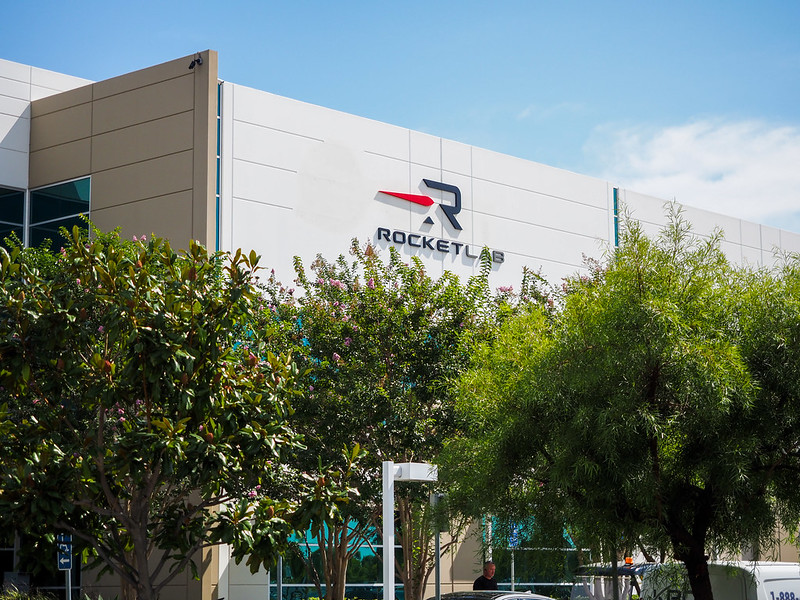Latest News
Rocket Lab Wins $515M Contract to Build 18 Satellites for Space Development Agency

Rocket Lab’s engine development center in Long Beach, California. Photo: Austin Adams/ Rocket Lab
The Space Development Agency confirmed it is the customer for Rocket Lab‘s $515 million, 18-satellite contract announced in December. Rocket Lab will build 18 satellites for the SDA’s Tranche 2 Transport Layer (T2TL) – Beta variant, marking Rocket Lab’s first award as a defense prime.
Rocket Lab disclosed the award in a Dec. 21 filing with the Securities and Exchange Commission (SEC), reporting the contract was for a U.S. government customer, without specifics. The contract includes a base amount of $489 million and incentives and options totaling $26 million. Work will begin immediately, and satellite delivery is set for 2027. The contract includes operating the satellites through 2030, with an option to extend to 2023.
“This contract marks the beginning of Rocket Lab’s new era as a leading satellite prime,” Rocket Lab CEO Peter Beck said in a Jan. 8 release. “We’ve methodically executed on our strategy of developing and acquiring experienced teams, advanced technology, manufacturing facilities, and a robust spacecraft supply chain to make this possible. It’s exciting to now be delivering this capability for government and commercial customers alike.”
The SDA announced Jan. 8 that the award is for 18 Tranche 2 Transport Layer (T2TL) – Beta variant prototype space vehicles, part of the Proliferated Warfighter Space Architecture (PWSA). T2TL will provide low-latency military data and connectivity worldwide. This follows after the SDA awarded two contracts worth more than $1.5 billion to Lockheed Martin and Northrop Grumman in August 2023 for 72 total satellites for the Tranche 2 Transport Layer – Beta.
The SDA said Monday that it decided to move some satellites from the planned Gamma variant to the Beta program to support further tactical satellite communication capabilities. The additional 18 T2TL-Beta space vehicles will be operated from lower inclination orbits than the first 72 spacecraft.
“We welcome Rocket Lab as the newest member of Team SDA and our third performer on the T2TL- Beta program,” commented Derek Tournear, SDA director. “Their selection as a new prime and bus provider demonstrates SDA’s dedication to our mission, which includes development of a growing, innovative marketplace necessary to sustain SDA’s proliferated architecture on two-year spirals.”
The award is a win for Rocket Lab’s Space Systems segment, which has become a larger revenue-driver for the company than launching satellites. Beck said on a Jan. 8 call with investors that it is the largest award in Rocket Lab’s history. Beck said Rocket Lab will lead the design, development, and production, test and operations of the satellite, including procurement and integrating the payload subsystem
Rocket Lab will use a high degree of vertical integration on this award, and the satellites will use subsystems and components built in-house, including solar panels, structures, star trackers, reaction wheels, radio, flight software, avionics, and launch dispenser. The satellites will be built at Rocket Lab’s development and manufacturing complex at its Long Beach, California, headquarters.
“It affirms our vertical integration strategy across Space Systems and establishes Rocket Lab’s position as a leading satellite prime, providing supply chain diversity to the Department of Defense and commercial constellations alike,” Beck said on the call.
“We view the T2 Beta as a foundational win for Rocket Lab,” Beck added. “One, it confirms Rocket Lab’s ability to capture high quality, high value work thanks to our previous investment the Space Systems businesses. Two, it significantly de-risks the growth and earnings outlook of our Space Systems business as well as the overall company. Three, it confirms Rocket Lab’s role as a disruptive, commercially developed, new government prime.”
Editor’s note: This story was published Dec. 22 and updated on Jan. 8
Get the latest Via Satellite news!
Subscribe Now